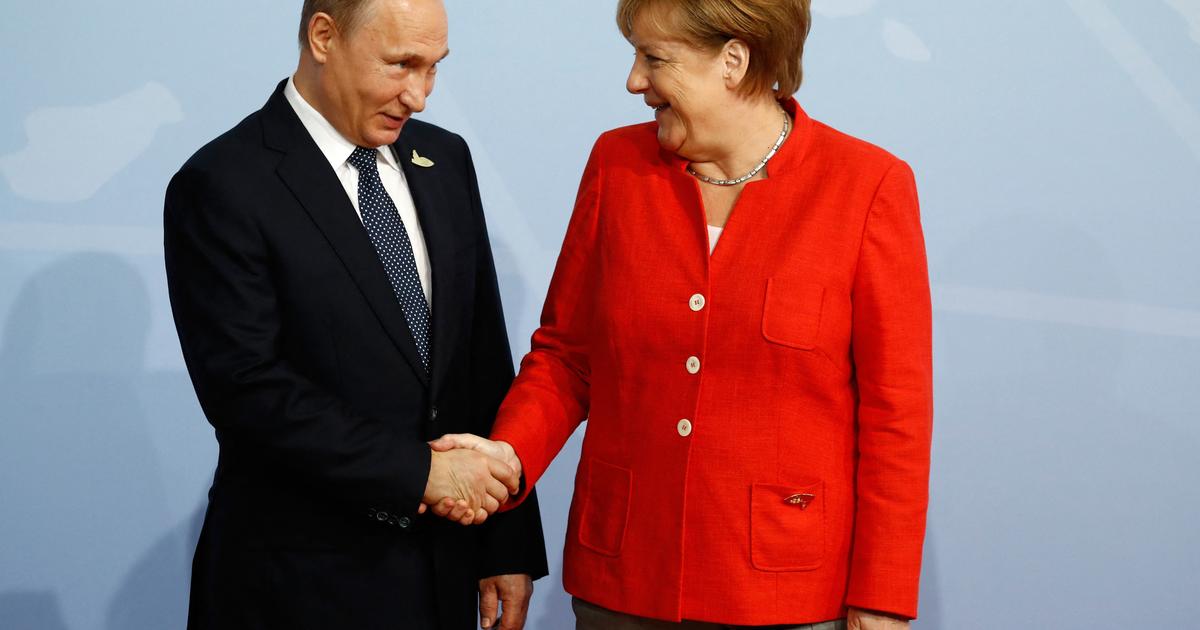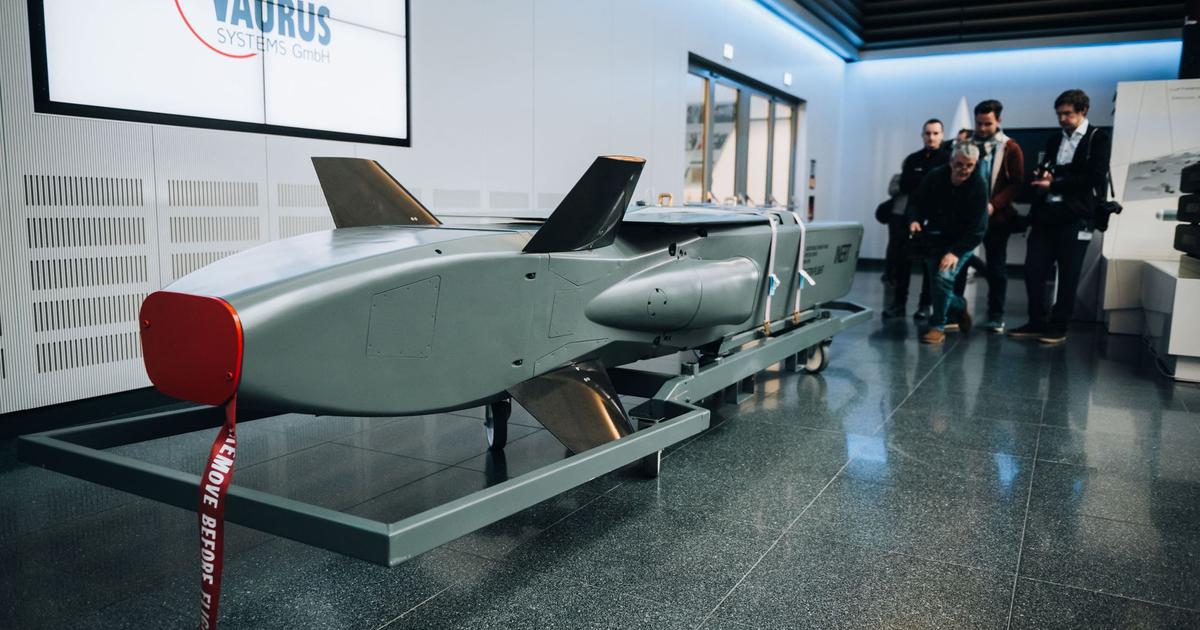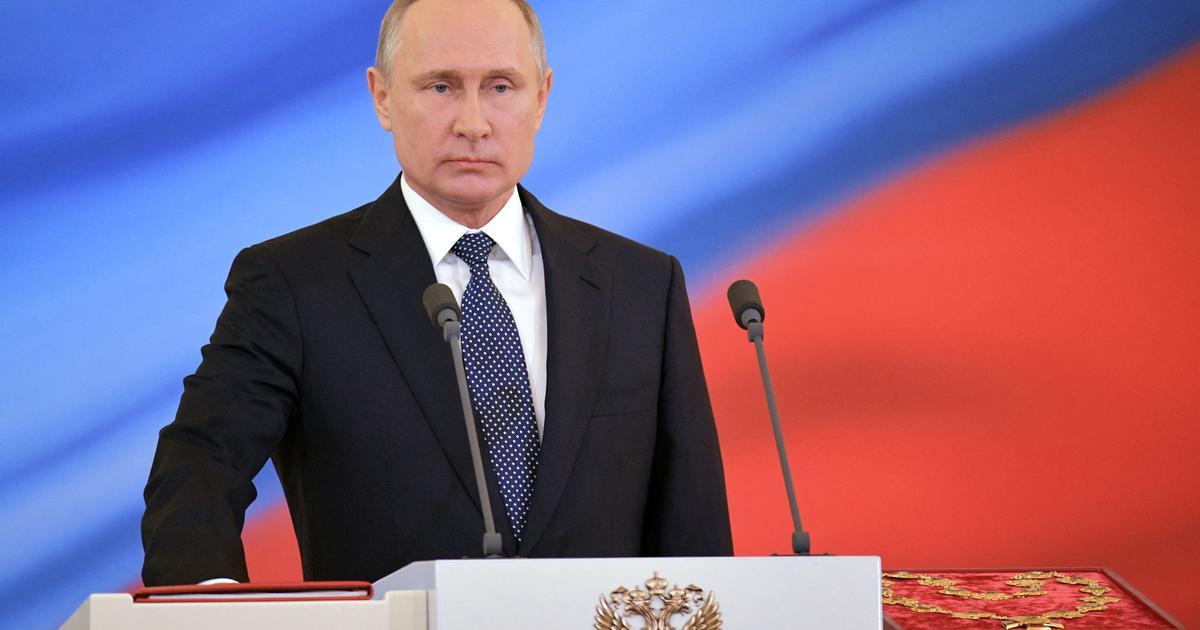During a farewell visit to Russia in July 2021, Angela Merkel felt she no longer had "
influence
over the Russian president", she told a reporter for the German daily
Der Spiegel,
November 24.
Vladimir Putin would have made him understand that in terms of "
power
"
,
it "
was finished
", even though "
for Putin only power counts
" according to the former German chancellor.
To discover
Follow information on the war in Ukraine with the Figaro application
According to her, the decline of her power to influence Putin was clear during this visit, due to the presence of Russian Foreign Minister Sergei Lavrov at the meeting table, when the two leaders often had "
private conversations
” before.
The two leaders had a particular affinity due to their past experience in the former GDR.
Angela Merkel grew up in this allied state of the USSR during the Cold War before the fall of the Berlin Wall, when Vladimir Putin worked there as a spy for the KBG.
In addition, Angela Merkel speaks fluent Russian and her Russian counterpart speaks fluent German, which facilitated their exchanges.
Read alsoGermany: the CDU facing the “inventory right” of the Merkel years
Russia's war in Ukraine came as no “
surprise
” to Merkel.
The Minsk agreements, reached under the Franco-German aegis in 2015 to end the war between Kiev and the pro-Russian separatists in Donbass supported by Moscow, have been "
emptied of their substance
" according to her, an implicit way of to say that these agreements had not been respected by Russia and Ukraine.
Angela Merkel also returned in her interview to the aborted Franco-German attempt in June 2021 to stimulate a new independent dialogue between Europe and Russia.
According to her, the failure of this initiative made her realize that within the European Council, her power of persuasion was diminishing as the end of her fourth term as Chancellor approached.
"
Everyone knew that I would be gone in the fall, so many people opposed me
," she said.
Merkel defends her foreign policy choices
As last April, the former Chancellor defended her policy vis-à-vis Russia.
She does not regret her decision taken jointly with French President Nicolas Sarkozy in 2008 to refuse Ukraine's immediate entry into NATO at the Bucharest summit.
She even makes a surprising parallel with Neville Chamberlain, the former British Prime Minister, to defend her policy.
Considered in collective memories as the political embodiment of the
"
appeasement
" strategy
towards Nazi Germany during the interwar period, for having initialed with the President of the French Council Édouard Daladier in September 1938, the Munich agreements which enabled Hitler to annex the Sudetenland - a region of Czechoslovakia - Angela Merkel believes that Chamberlain actually delayed a war that was somehow inevitable.
It was after watching a documentary tracing the history of the Munich Accords titled “
The Edge of War
” that the ex-Chancellor reportedly found Chamberlain undeserving of his reputation and ultimately succeeded in preparing his country for war. by pushing back the triggering thereof.
According to Merkel, her policy towards Russia - refusal of Ukraine's entry into NATO and the Minsk agreements of 2014-2015 to end the conflict in the Donbass - would have had the same effect for Ukraine and would have allowed it is up to kyiv to better defend itself by delaying the Russian invasion as much as possible.
Read alsoWar in Ukraine: Angela Merkel does not regret her accommodations with Moscow
Finally, in her interview, Angela Merkel defended herself for not having paid enough attention to Ukraine after the Maidan revolt and the annexation of Crimea in 2013-2014.
"
People write about 2013 and 2014 as if I had no other subject to discuss than the Minsk agreements, and ask: 'How could you take your eyes off Ukraine?'
But it's too simple.
We had elections in Germany, there was always something going on with
Greece at the time
, and I broke my pelvic bone
,” she said, referring to an injury sustained on a skiing holiday. in 2014. With US President Barack Obama, “
we tried everything after the annexation of Crimea by Russia to prevent further Russian incursions into Ukraine
,” she finally added.
These declarations are revealed at a time when the legacy of the Merkel years is increasingly questioned across the Rhine, in particular because of the establishment during this period of German dependence on Russian gas, symbolized by the Nord Stream gas pipelines 1 and 2 (the second never having entered service), while the Russian invasion of Ukraine pushes Europe to seek new gas suppliers.















